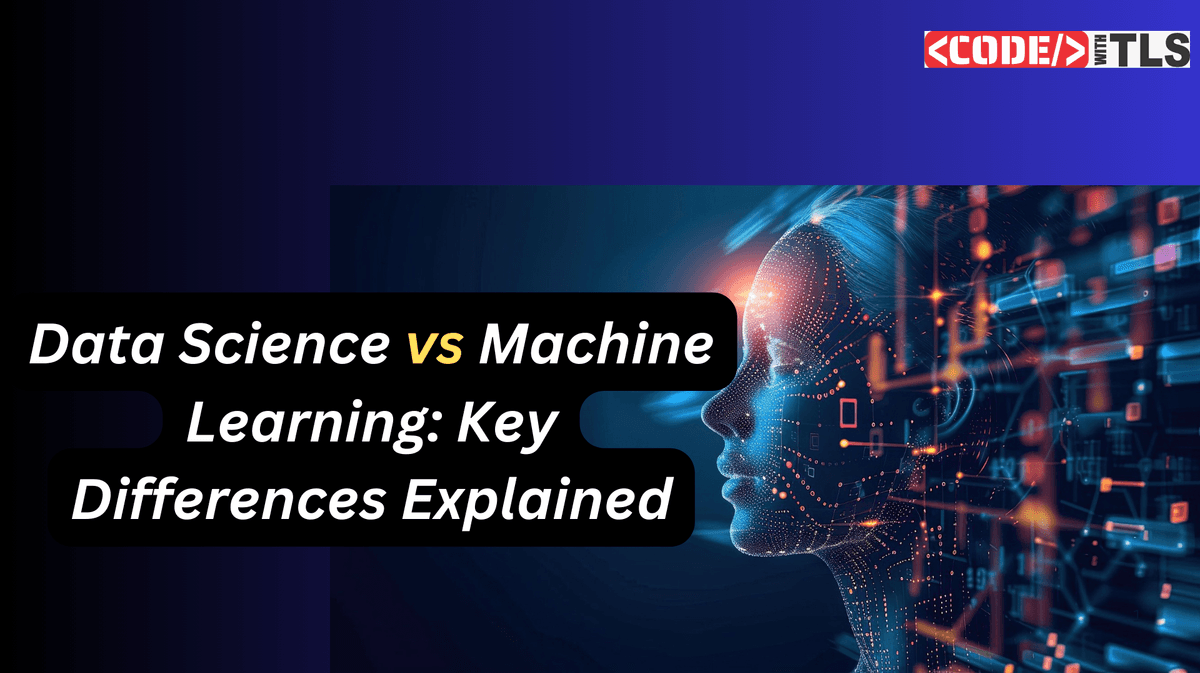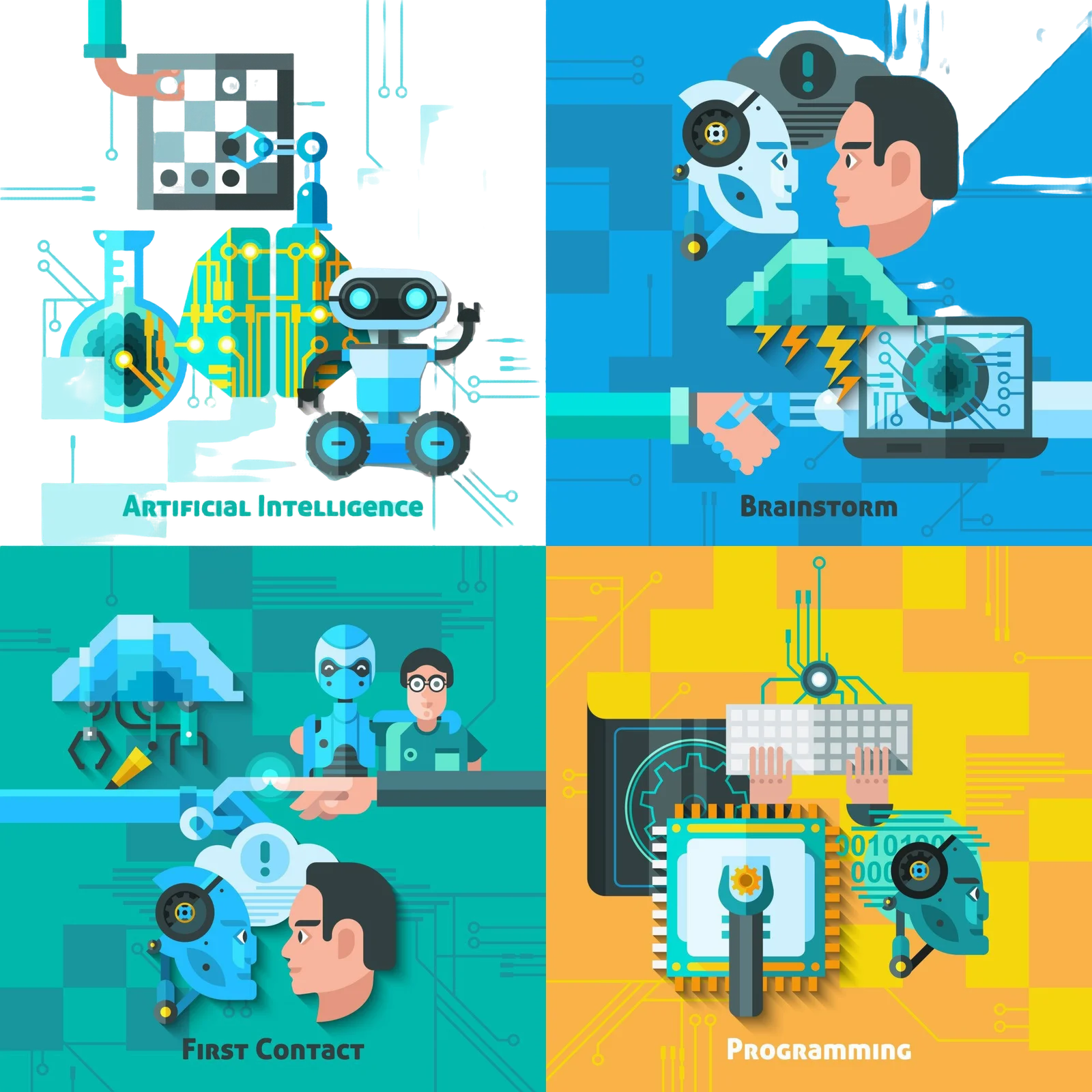

Data Science vs Machine Learning: Key Differences Explained
Published: 2025-01-11 09:52:41
In today’s data-driven era, understanding the nuances of Data Science vs Machine Learning is crucial for leveraging their potential in transforming industries. Data science focuses on extracting insights from data, while machine learning builds systems that learn and adapt from experience. Together, they form a dynamic duo powering innovations in healthcare, finance, and technology. This article explores their definitions, differences, intersections, and applications to guide enthusiasts and professionals in navigating these fields effectively.
How Data Science vs Machine Learning Work Together
Despite their differences, Data Science vs Machine Learning are deeply interconnected. Machine learning is often a critical component of data science, used for predictive modeling and automation. Conversely, data science provides the foundation for machine learning by preparing and analyzing the data required for training models.

What is Data Science?
Data Science is an interdisciplinary field that focuses on extracting insights and knowledge from structured and unstructured data. It combines principles from mathematics, statistics, computer science, and domain expertise to analyze, interpret, and visualize data. The ultimate goal of Data Science vs Machine Learning comparison lies in identifying how actionable insights differ from intelligent automation.
Key Components of Data Science
- Data Collection: Gathering data from various sources such as databases, APIs, web scraping, or IoT devices.
- Data Cleaning: Processing raw data to handle missing values, inconsistencies, and inaccuracies.
- Exploratory Data Analysis (EDA): Using statistical and visualization techniques to understand patterns, trends, and relationships in data.
- Data Modeling: Building predictive models using regression, classification, or clustering techniques.
- Data Visualization: Creating charts, graphs, and dashboards to communicate findings effectively.
AI Tools for Digital Marketing 2025
Android App Development Certification Course
Applications of Data Science
- Healthcare: Predicting patient outcomes and optimizing treatment plans.
- Finance: Fraud detection, risk assessment, and algorithmic trading.
- E-commerce: Personalized recommendations and customer behavior analysis.
- Social Media: Sentiment analysis and trend prediction.
know about : Top Data Science Jobs in India: An In-Depth Look at Career Opportunities
What is Machine Learning?
Machine Learning (ML) is a subset of artificial intelligence (AI) that focuses on developing algorithms capable of learning and making predictions or decisions based on data. When examining Data Science vs Machine Learning, ML represents the technical backbone that powers automation and predictive intelligence.
Key Components of Machine Learning
- Supervised Learning: Training models on labeled data to make predictions. Examples include regression and classification.
- Unsupervised Learning: Identifying patterns in unlabeled data through clustering or dimensionality reduction.
- Reinforcement Learning: Training agents to make decisions in an environment by rewarding desired behaviors.
- Deep Learning: A specialized subset of machine learning that uses neural networks to process large amounts of data for tasks like image recognition or natural language processing (NLP).

Applications of Machine Learning
- Autonomous Vehicles: Object detection and navigation.
- Healthcare: Diagnosing diseases through medical imaging analysis.
- Finance: Credit scoring and stock market predictions.
- Natural Language Processing: Chatbots, translation services, and sentiment analysis.
Data Science vs Machine Learning: Key Differences
Although Data Science vs Machine Learning overlap in many areas, they differ in their scope, focus, and methodologies. Below are the key distinctions:
- Scope
- Data Science: Encompasses the entire data pipeline, from data collection and cleaning to visualization and decision-making.
- Machine Learning: Primarily focuses on creating and optimizing algorithms that can learn from data and make predictions or decisions.
- Skill Sets
- Data Scientists: Need expertise in statistics, programming (e.g., Python, R), data visualization tools (e.g., Tableau, Power BI), and domain knowledge.
- Machine Learning Engineers: Require proficiency in programming, algorithm design, and frameworks like TensorFlow, PyTorch, or Scikit-learn.
- Tools and Techniques
- Data Science: Relies on tools like SQL, Excel, Python, and libraries such as Pandas and Matplotlib for data analysis.
- Machine Learning: Involves specialized tools like TensorFlow, PyTorch, and Keras for building and deploying models.
- Output
- Data Science: Produces insights, reports, and visualizations to support decision-making.
- Machine Learning: Delivers predictive models and systems capable of automating tasks or solving specific problems.
- Real-World Example
- Data Science: A company analyzes customer feedback to identify common complaints and areas for improvement.
- Machine Learning: A chatbot learns to understand and respond to customer queries automatically.
Read More: Python for Data Science: Why It’s Essential and How You’ll Use It
Choosing Between Data Science vs Machine Learning as a Career
Both fields offer lucrative career opportunities. Your choice of Data Science vs Machine Learning depends on your interests and skill set.
Become a Successful Business Intelligence Analyst
Benefits of Digital Marketing Course
Best Digital Marketing Course in India
Best Digital Marketing Institute in Delhi
Best Mobile App Development Course
Best Mobile App Development Course Certification

Data Science
- Ideal For: Individuals interested in exploratory data analysis, business strategy, and decision-making.
- Roles: Data Scientist, Data Analyst, Business Intelligence Analyst.
- Skills: Strong analytical skills, statistical knowledge, and expertise in data visualization.
Machine Learning
- Ideal For: Those passionate about algorithms, programming, and building intelligent systems.
- Roles: Machine Learning Engineer, AI Specialist, Deep Learning Engineer.
- Skills: Proficiency in mathematics, programming, and machine learning frameworks.
Future Trends in Data Science vs Machine Learning
Emerging trends demonstrate the growing synergy of Data Science vs Machine Learning:
- Automated Machine Learning (AutoML): Simplifies model building, enhancing productivity.
- Explainable AI (XAI): Ensures transparency in decision-making models.
- Big Data Integration: Enables deep insights through advanced analytics.
- Edge AI: Drives real-time decision-making on devices.
- Cross-Disciplinary Collaboration: Broadens application opportunities by blending domains.
Best Programming Languages to Learn in 2025
Big Data Analytics in Data Science
Can I Learn Coding After 10th?
Career Opportunities and Salaries for MERN Stack Developers
Data Science Course Duration and Fees 2025
Summary
In the debate of Data Science vs Machine Learning, it’s clear they are interrelated yet distinct fields. While data science involves the comprehensive process of collecting, cleaning, analyzing, and visualizing data, machine learning focuses on creating intelligent systems to automate tasks. Together, they are revolutionizing industries and shaping the future of AI, big data, and analytics.
Enroll in our Data Science and Machine Learning Course today and take the first step toward a rewarding career! Our course offers:
- Boost Your Career with Competitive Salary Hike
- Comprehensive Job Assistance
- Flexible Learning Hours to fit your schedule
- Both Online and Offline Study Options
- Affordable Fees for High-Quality Education
Contact us now for a free demo or to join the classes: ? 91 8527866980
info@codewithtls.com
FAQs
- What is the primary difference between data science and machine learning?
Data science focuses on the entire data lifecycle, including data collection, cleaning, analysis, and visualization, while machine learning specializes in developing algorithms that learn from data to make predictions or decisions. - Can data science exist without machine learning?
Yes, data science can exist without machine learning. Many data science tasks, such as data cleaning, visualization, and statistical analysis, do not require machine learning algorithms. - Which is better for career prospects: data science or machine learning?
Both fields offer excellent career prospects. Data science is ideal for those interested in analytics and decision-making, while machine learning suits individuals passionate about programming and algorithm development. - Do data scientists need to know machine learning?
While not mandatory, knowledge of machine learning is beneficial for data scientists as it allows them to build predictive models and automate tasks, enhancing their capabilities. - How do data science and machine learning work together?
Data science provides the necessary data preparation, analysis, and insights, while machine learning uses this data to build intelligent models that can learn and improve over time.
Read Also: Data Science vs Data Analytics: Understanding the Difference


